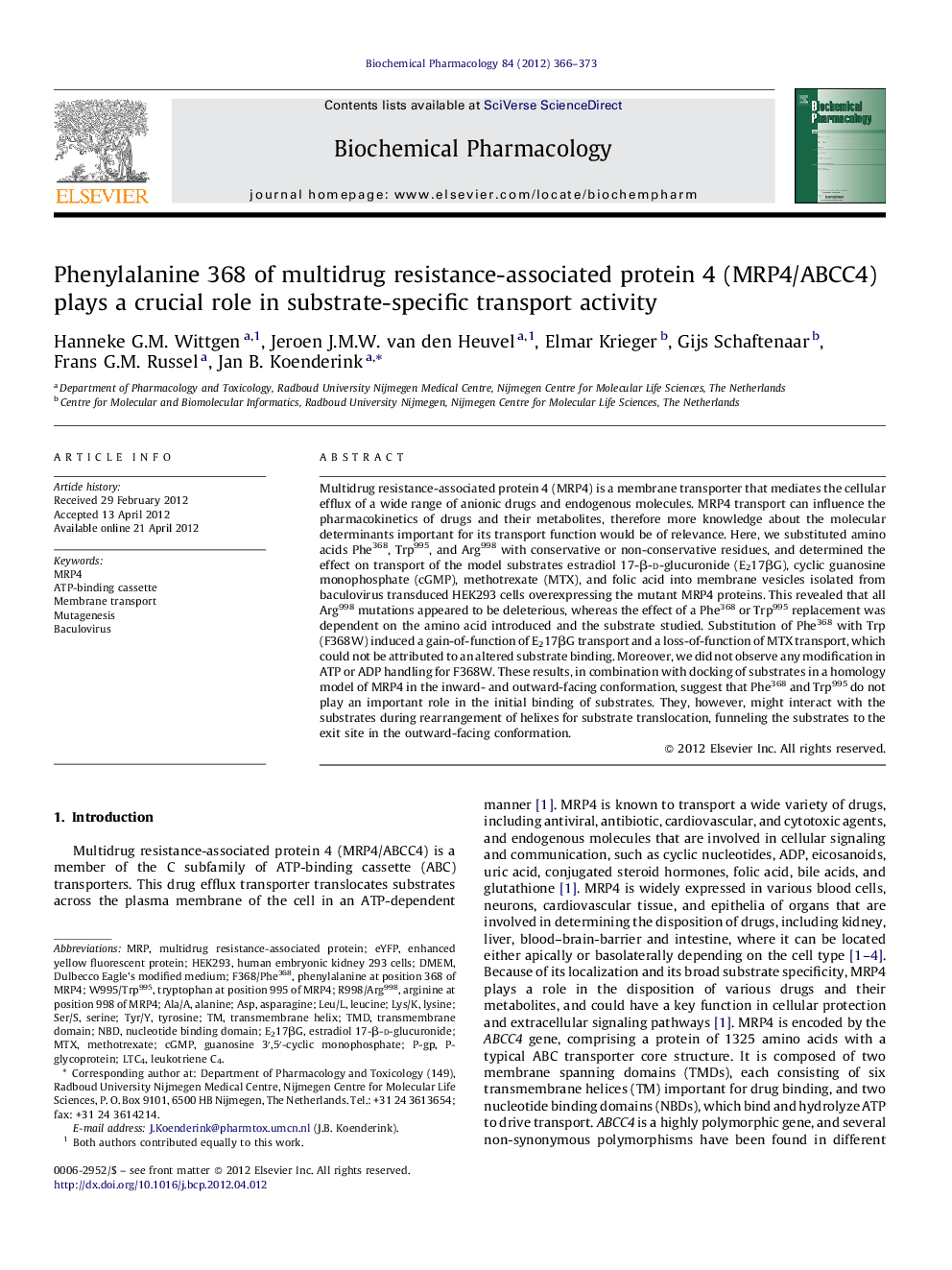| Article ID | Journal | Published Year | Pages | File Type |
|---|---|---|---|---|
| 5823909 | Biochemical Pharmacology | 2012 | 8 Pages |
Multidrug resistance-associated protein 4 (MRP4) is a membrane transporter that mediates the cellular efflux of a wide range of anionic drugs and endogenous molecules. MRP4 transport can influence the pharmacokinetics of drugs and their metabolites, therefore more knowledge about the molecular determinants important for its transport function would be of relevance. Here, we substituted amino acids Phe368, Trp995, and Arg998 with conservative or non-conservative residues, and determined the effect on transport of the model substrates estradiol 17-β-d-glucuronide (E217βG), cyclic guanosine monophosphate (cGMP), methotrexate (MTX), and folic acid into membrane vesicles isolated from baculovirus transduced HEK293 cells overexpressing the mutant MRP4 proteins. This revealed that all Arg998 mutations appeared to be deleterious, whereas the effect of a Phe368 or Trp995 replacement was dependent on the amino acid introduced and the substrate studied. Substitution of Phe368 with Trp (F368W) induced a gain-of-function of E217βG transport and a loss-of-function of MTX transport, which could not be attributed to an altered substrate binding. Moreover, we did not observe any modification in ATP or ADP handling for F368W. These results, in combination with docking of substrates in a homology model of MRP4 in the inward- and outward-facing conformation, suggest that Phe368 and Trp995 do not play an important role in the initial binding of substrates. They, however, might interact with the substrates during rearrangement of helixes for substrate translocation, funneling the substrates to the exit site in the outward-facing conformation.
Graphical abstractDownload full-size image
